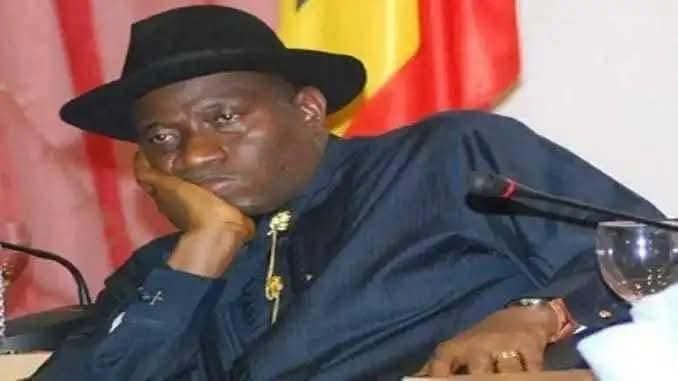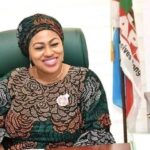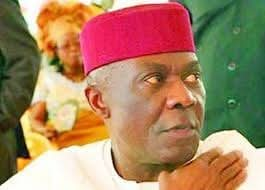By Emeka Omeihe
Was former president, Goodluck Jonathan wrong to expect his successor, late Muhammadu Buhari to have defeated Boko Haram insurgency soon after assuming office? That is the question brought to the fore by Jonathan’s reservations last week, on Buhari’s inability to expeditiously bring the war to an end, despite being once named by the insurgent group as their negotiator.
This question still needs answers irrespective of the clarification by Jonathan that his statement should not be misconstrued as an indictment on Buhari or suggestive of his complicity in the Boko Haram saga. Perhaps, interrogating the observation, may well get the country closer to comprehending the complexities posed by the festering Boko Haram challenge.
Jonathan had during a book launch in Abuja said, “One of the committees we set up then, the Boko Haram nominated Buhari to lead their team to negotiate with the government.
So, I was feeling that, oh, if they nominated Buhari to represent them and have a discussion with the government committee, then when Buhari took over, it could have been an easier way to negotiate with them and they would have handed over their guns. But it is still there till today”.
The statement quickly drew the ire of Buhari’s former spokesman, Garba Shehu. He described it as misleading since neither Boko Haram’s founding leader, Muhammed Yusuf, nor his successor, Abubakar Shekau, ever nominated Buhari for mediation. Shehu claimed that Shekau consistently denounced and threatened Buhari while recalling that Buhari escaped a Boko Haram bomb attack in Kaduna in 2014.
Shehu however, claimed confusion over the nomination of Buhari arose after a Boko Haram faction, allegedly sponsored by his (Buhari’s) political opponents staged a press conference in Maiduguri, through one Abu Mohammed Ibn Abdulaziz claiming that the sect preferred Buhari and other northern elders.
Even then, he said Buhari dismissed the report at the time as “just speculation” since nobody had contacted him directly.
All that Shehu strove to prove is that Buhari was not nominated by the known leaders of the Boko Haram insurgency. But he admitted there was a nomination by Ibn Abdulaziz, a factional leader of the insurgency group who he claimed was a political agent. Shehu also sought to establish that Buhari has no known links with Boko Haram as they demonised and even attacked him in Kaduna. All that could as well be.
Does Jonathan’s observation collapse just because Buhari’s nomination was not made by either Mohammed or Shekau presented by Shehu as the known leaders of the insurgent group? Or, how correct is it to presume that the nomination by Ibn Abdulaziz did not exist coming from the quarters it did, especially since the insurgency group demonised and attacked Buhari?
Shehu’s answers to the two questions will likely be in the affirmative. In order words, having seemingly faulted the premise on which Jonathan based his expectation of Buhari to have won the war soon after assuming office, his statement should be seen as lacking in merit. That would however, amount to an oversimplification of the larger issues thrown up by Jonathan.
If Jonathan was wrong to expect Buhari to have won Boko Haram based on the factional leader that made the nomination and Buhari’s rejection of the same, what do we make of copious evidence where Buhari made claims of his uncommon capacities to tame the insurgency group? Did Buhari leave anyone in doubt that he had the capacity to handle the raging insurgency in the country better? At any rate, was the fight against insecurity not one of the cardinal campaign programmes with which he sought the votes of the electorate?
Buhari unarguably, was one of the greatest critics of the handling of the Boko Haram insurgency by the Jonathan Administration. He not only accused Jonathan of “looking the other way” when the Chibok girls were abducted but was reported to have said in 2013 that the “military offensive against Boko Haram is anti-north” Many northern leaders had at the budding stages of the insurgency faulted it and read political motives into it. Elite dissonance was one of the key reasons Boko Haram got entrenched.
During his famous speech at Chatham House London, Buhari did not leave his audience in doubt that he had solutions to the Boko Haram insurgency. He did not only fault the prosecution of the war but promised to lead the war from the front.
Hear him, “We will always act on time and not allow problems to irresponsibly fester, and I Muhammadu Buhari, will always lead from the front and return Nigeria to its leadership role in regional and international efforts to combat terrorism”
He also promised to pay special attention to the welfare of soldiers in and out of service, “we will give them adequate and modern arms and ammunitions to work with… to choke Boko haram’s financial and equipment channels, we will be tough on terrorism and tough on its root causes” Buhari received thunderous ovation from his audience for speaking so confidently on his plans to eliminate Boko Haram.
Buhari was also reported to have assigned himself a timeline of six months to win the war against the insurgents after he won the 2015 general election.
It is therefore not in doubt that Buhari’s statements and body language gave the impression that he had all it takes to tame the Boko Haram monster. So, Jonathan’s expectation of him to have won the war against insurgency soon after assuming office is based on solid foundation. In that also, he is with many.
Irrespective of the quarters from which the mediation nomination came, Buhari left nobody in doubt that he had the magic wand to win the war against Boko Haram. Many believed him and he owes his electoral victory largely to that expectation. His profile as an Army General and former military head of state counted as added advantages.
Jonathan may not have gone this length, but the issues were obviously at the back of his mind when he spoke the way he did at the book launch. It serves no useful purpose misconstruing his statement as suggestive of Buhari’s link with Boko Haram. Buhari made such claims and there is nothing wrong holding him accountable to his words.
Buhari was conscious of the promises he made on the matter. It was in apparent bid to fulfil them, that he gleefully declared in December 2015, barely six months after assuming office that “Nigeria has technically won the war” against Islamist Boko Haram insurgents. He had predicted his claims on the grounds that the militant group could no longer mount “conventional attacks” against security forces or population centres.
For him, Boko Haram had been reduced to fighting with Improvised Explosive Devices (IED) and remained a force only in its heartland of Borno state. His claims were seen as hasty and received with mixed feelings by those versed in asymmetrical warfare.
But all these claims were soon to collapse like a pack of cards. The insurgents quickly put a lie to them as they resumed onslaughts against military formations and population centres. These took enormous toll on the military both in human and material capital despite efforts to contain the insurgents.
It is an irony of sorts that Buhari failed to win the war against the Boko Haram insurgency until he left office. What has rather been witnessed has been the emergence of more splinter groups with some attacking population centres in parts of the country they were not able to access when Jonathan held sway.
Just a few weeks ago, Borno state governor, Babagana Zulum raised an alarm on the regrouping of the insurgents around the Tumbus areas of Lake Chad and Mandara Hills within the Sambisa Forest in the state. This is in addition to several attacks, killings and abductions by the insurgent group.
But the more troubling arising from the book launch, is the seeming lack of clarity among leaders on what Boko Haram really stands for, its sponsors and the best strategy to eradicate the scourge.
Jonathan believes the issue of Boko Haram is far more complex than it is often presented. He sees their motivation beyond the hunger-narrative even as he fingered external sponsorship given their sophistication in arms and ammunitions.
The Chief of Defence Staff, Christopher Musa wants the underlying factors that incubate insecurity; poverty, lack of education and unemployment to be addressed. For former president Olusegun Obasanjo, the country must ask itself hard questions about how it has handled the crisis over the past 15 years. If by now there is no consensus on some of these issues, is it surprising Boko Haram appears to be defying solutions?




